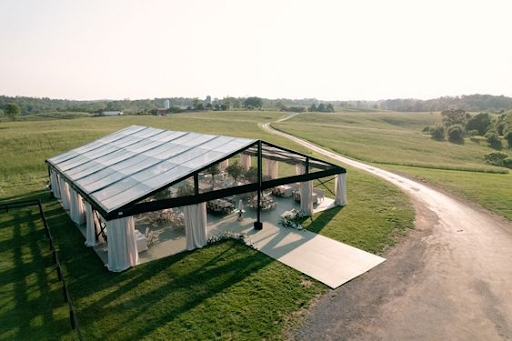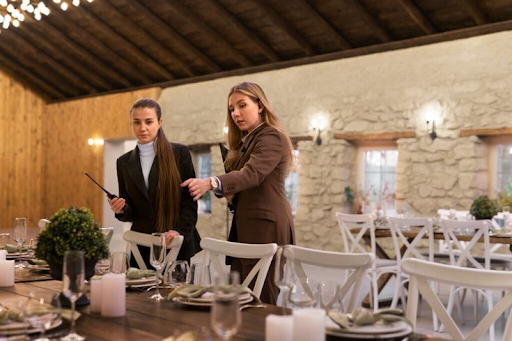Choosing an Event Venue: Your Essential Step-by-Step Guide
Selecting the right venue is a crucial aspect of planning any event. Whether it’s a corporate seminar,
a wedding, or a private party, the venue can significantly influence the success of the occasion. The perfect event space should cater to your specific needs, provide the right atmosphere, and offer the necessary amenities to ensure a smooth and memorable event. This guide will help you navigate the essential steps in choosing the ideal venue, from assessing your event needs to budgeting and finalizing the booking.
Assessing Your Event Needs
Determining Space Requirements
Understanding your event size and venue capacity needs is the first step in selecting a venue. Determine the number of guests you expect and consider the type of seating arrangement you’ll need. For instance, a corporate event may require theater-style seating, while a wedding might need round tables for a sit-down dinner.
- Event Size: Calculate the number of attendees to ensure the venue can comfortably accommodate everyone.
- Venue Capacity: Look for venues that offer flexibility in layout and capacity, allowing for adjustments as needed.
Considering the Type of Event
The nature of your event will significantly impact your venue choice. Different events have distinct requirements and atmospheres.
- Corporate Events: These often need venues with conference facilities, AV equipment, and breakout rooms.
- Weddings: Look for romantic settings with beautiful backdrops, ample space for dining and dancing, and suitable amenities for both the ceremony and reception.
- Private Parties: Choose venues that offer a more intimate and flexible setting, with options for customization.
Location and Accessibility
Choosing a Convenient Location
Location is a critical factor in venue selection. A convenient and accessible location ensures that your guests can easily attend the event.
- Accessibility: Consider venues that are easily reachable by public transport or major roads.
- Public Transport Options: Ensure there are adequate public transport options nearby to accommodate guests who do not drive.
Evaluating Parking and Accessibility Features
Adequate parking and accessibility features are essential for the convenience and comfort of your guests.
- Venue Parking: Look for venues with ample parking space or nearby parking facilities.
- ADA Compliance: Ensure the venue meets ADA standards, providing accessibility for guests with disabilities.
Venue Amenities and Services
Essential Amenities to Look For
The right amenities can make or break your event. Ensure the venue offers the necessary services and equipment.
- A/V Equipment: Check if the venue provides audio-visual equipment, such as projectors, microphones, and sound systems.
- Catering Options: Look for venues that offer in-house catering or allow external caterers.
- Staging: Ensure the venue has suitable staging for presentations, performances, or speeches.
Evaluating In-House vs. External Services
Decide whether you prefer the convenience of in-house services or the flexibility of bringing in your own vendors.
- In-House Services: Venues offering in-house services can simplify planning but may have limitations.
- Vendor Restrictions: Check if the venue has restrictions on external vendors or charges additional fees for outside services.
Budgeting for Your Venue
Understanding Venue Costs
Having a clear understanding of venue costs is essential to stay within budget.
- Venue Pricing Models: Familiarize yourself with different pricing models, such as per-person rates, hourly rates, or flat fees.
- Hidden Costs: Be aware of additional costs, such as service charges, cleaning fees, or overtime charges.
Tips for Negotiating Venue Prices
Negotiating can help you get the best deal and maximize your budget.
- Venue Negotiation Strategies: Be prepared to discuss your budget and ask for discounts or added value services.
- Cost-Saving Tips: Consider booking during off-peak times or negotiating package deals to save money.
Visiting Potential Venues
What to Look for During a Site Visit
A site visit is crucial to ensure the venue meets your expectations and requirements.
- Checking Venue Facilities: Inspect the facilities to ensure they are clean, well-maintained, and equipped with necessary amenities.
- Layout Examination: Evaluate the layout to ensure it suits your event’s flow and requirements.
Questions to Ask Venue Managers
Asking the right questions can help you make an informed decision.
- Venue FAQs: Inquire about availability, capacity, and amenities.
- Booking Conditions: Understand the terms of booking, including deposit requirements, cancellation policies, and any restrictions.
Conclusion
Choosing the right event venue requires careful consideration and thorough research. By following this step-by-step guide, you can ensure you select a venue that meets your event’s needs and enhances the overall experience for all attendees. Whether you’re planning a corporate event, wedding, or private party, the right venue can make all the difference in creating a memorable and successful occasion.
FAQs About Choose the Right Venue
How early should I book an event venue?
It’s advisable to book your event venue at least 6-12 months in advance, especially for popular dates and locations. Early booking ensures you have a wider selection of venues and can secure the best rates.
What are the most common mistakes when choosing an event venue?
Common mistakes include not considering the venue’s capacity, overlooking accessibility, ignoring hidden costs, and failing to inspect the venue in person. It’s essential to thoroughly research and visit potential venues to avoid these pitfalls.
Can I change my venue layout after booking?
Many venues offer flexibility in layout arrangements, but it’s crucial to confirm this beforehand. Discuss your layout needs during the booking process and ensure any changes can be accommodated without additional costs.
Are there typically cancellation policies for event venues?
Yes, most venues have cancellation policies. These policies vary, so it’s important to review them carefully. Understand the terms, including any penalties or fees for canceling or rescheduling your event.





